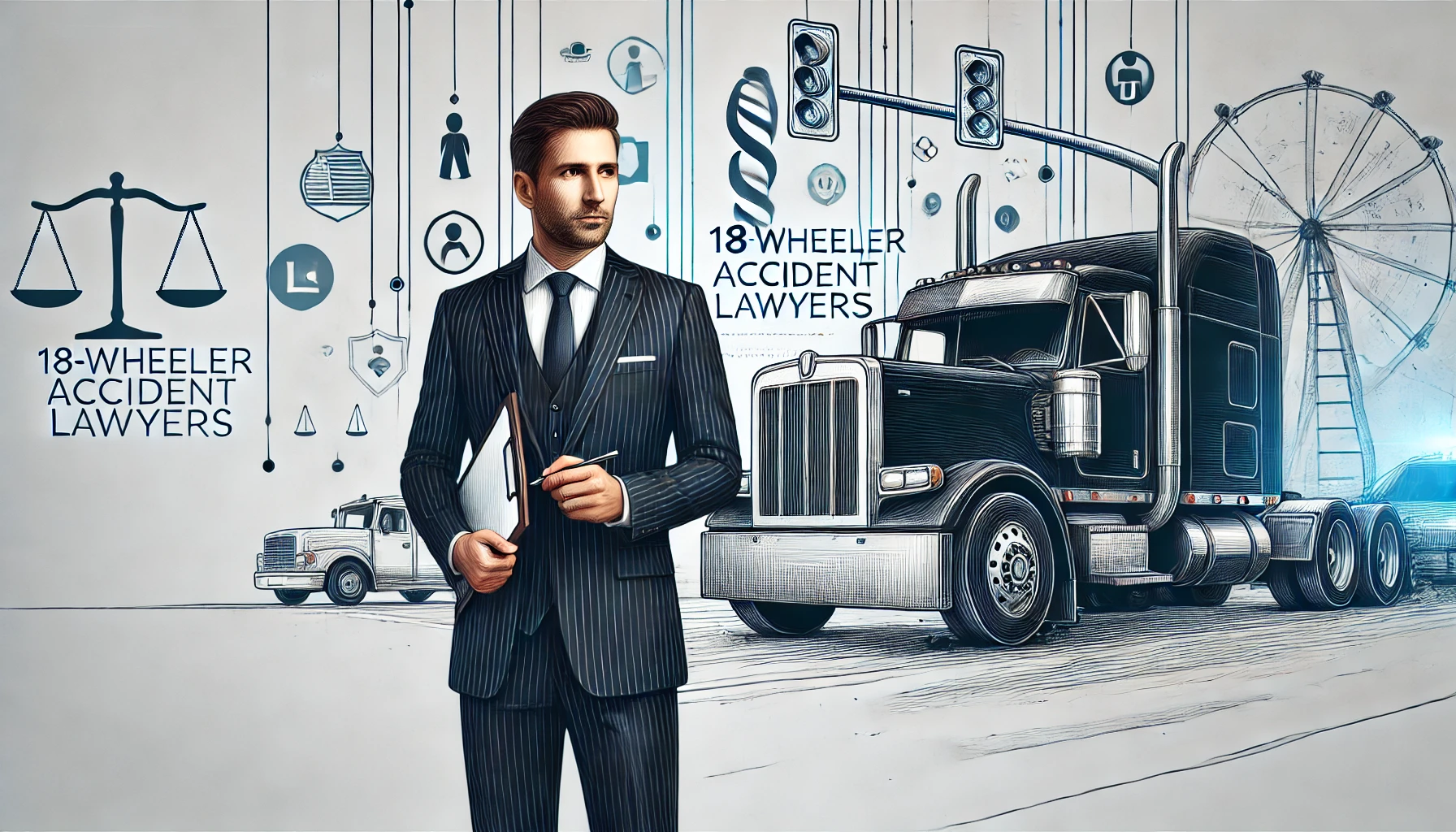Accidents involving 18-wheelers are significantly more dangerous and complex than typical car accidents. Due to their size and the potential for serious damage, victims often face severe physical, emotional, and financial consequences. Specialized 18 wheeler accident lawyers are crucial for navigating these cases effectively and ensuring victims receive the compensation they deserve.
1. Why 18 Wheeler Accidents Are Unique
Sheer Size and Weight: 18-wheelers can weigh up to 80,000 pounds when fully loaded, which is approximately 20 times heavier than the average car. This disparity leads to far greater damage and higher risk of fatalities in collisions.
Complex Nature of Cases: Multiple parties can be involved, from the driver and the trucking company to the manufacturer of parts. These layers make determining liability more challenging than in typical car accidents.
Higher Stakes for Compensation: Due to the severe impact, compensation claims are usually larger, covering extensive medical expenses, long-term rehabilitation, lost wages, and other damages.
2. Common Causes of 18 Wheeler Accidents
- Driver Fatigue: The trucking industry is known for long hours and pressure to meet delivery deadlines, despite FMCSA regulations that limit hours of service (HOS). Fatigue can lead to poor decision-making and slow reaction times.
- Distracted Driving: Use of phones, radios, or other devices can divert attention from the road.
- Speeding and Reckless Driving: Large trucks need significantly more distance to stop. Speeding increases the risk of accidents and limits the driver’s ability to respond to sudden changes.
- Improperly Loaded Cargo: Shifting or uneven cargo loads can destabilize the truck, causing rollovers or loss of control.
- Mechanical Failures: Problems such as brake failure, tire blowouts, or engine issues are common, often due to poor maintenance or defective parts.
3. Legal Framework for 18 Wheeler Accidents
The legal landscape for 18-wheeler accidents is governed by a mix of federal regulations, such as those from the FMCSA, and state laws. These rules cover aspects like:
- Driver Requirements: Licensing, training, and health standards that drivers must meet.
- Maintenance Standards: Regular checks mandated for vehicle parts, including brakes, tires, and lights.
- Hours of Service (HOS): Regulations that limit driving hours to prevent fatigue.
Violations of any of these regulations can play a pivotal role in proving liability.
4. Who Can Be Held Liable?
Determining liability can be complex due to the multiple potential parties involved, such as:
- The Truck Driver: If negligence, such as driving under the influence or ignoring HOS rules, is proven.
- Trucking Company: Often held liable for hiring practices, inadequate training, or failure to comply with safety regulations.
- Manufacturers: Responsible if the accident was due to defective parts or vehicle design.
- Cargo Loaders: If improper loading contributed to the accident.
5. Importance of Evidence Collection
Building a strong case requires comprehensive evidence:
- Black Box Data: The truck’s event data recorder can provide crucial information about speed, braking, and other driving behaviors leading up to the accident.
- Driver Logs: Reviewing HOS records to check compliance with regulations.
- Maintenance Records: Verifying that the truck received proper and timely maintenance.
- Witness Testimonies: Eyewitness accounts can corroborate or contest driver statements.
6. The Role of an 18 Wheeler Accident Lawyer
Specialized Expertise: Lawyers with experience in truck accident cases have in-depth knowledge of the regulations and tactics used by trucking companies and their insurers.
Case Investigation: A good attorney will coordinate with experts, such as accident reconstruction specialists, to build a robust case.
Handling Insurance Companies: Insurance companies representing trucking businesses are known for using aggressive tactics to minimize payouts. An experienced lawyer negotiates effectively to secure fair compensation.
Litigation Skills: If negotiations fail, the lawyer should be prepared to take the case to court.
7. Types of Compensation
Victims of 18-wheeler accidents may be entitled to:
- Economic Damages: These include medical expenses, lost wages, rehabilitation costs, and future earning capacity.
- Non-Economic Damages: Compensation for pain and suffering, emotional distress, and loss of companionship.
- Punitive Damages: In cases of gross negligence, such as a trucking company ignoring safety regulations knowingly, punitive damages may be awarded.
8. Steps to Take After an 18 Wheeler Accident
- Seek Immediate Medical Attention: Your health is the priority, and medical records are crucial evidence.
- Document the Scene: If possible, take photos and gather witness information.
- Report the Accident: File a police report that includes all relevant details.
- Contact an 18 Wheeler Accident Lawyer: Early legal involvement ensures evidence is preserved and rights are protected.
9. Choosing the Right Lawyer
- Experience and Track Record: Select a lawyer or law firm with proven success in 18-wheeler accident cases.
- Resource Network: The best attorneys have a team of investigators, medical experts, and accident reconstruction professionals.
- Transparency and Communication: You should feel comfortable discussing your case, and your lawyer should keep you informed at every step.
10. Challenges in 18 Wheeler Accident Cases
These cases can be highly contested, with trucking companies and insurers employing teams of lawyers to protect their interests. Understanding how these firms operate is vital for leveling the playing field.
Conclusion
Navigating the legal aftermath of an 18-wheeler accident requires specialized knowledge due to the complex interplay of regulations, liability, and the scale of damages. An experienced 18-wheeler accident lawyer is essential for guiding victims through the process, from collecting evidence to advocating for maximum compensation. If you’re a victim of such an accident, contacting an experienced lawyer promptly is the most crucial step to protecting your rights and ensuring you receive the justice you deserve.

Leave a Reply